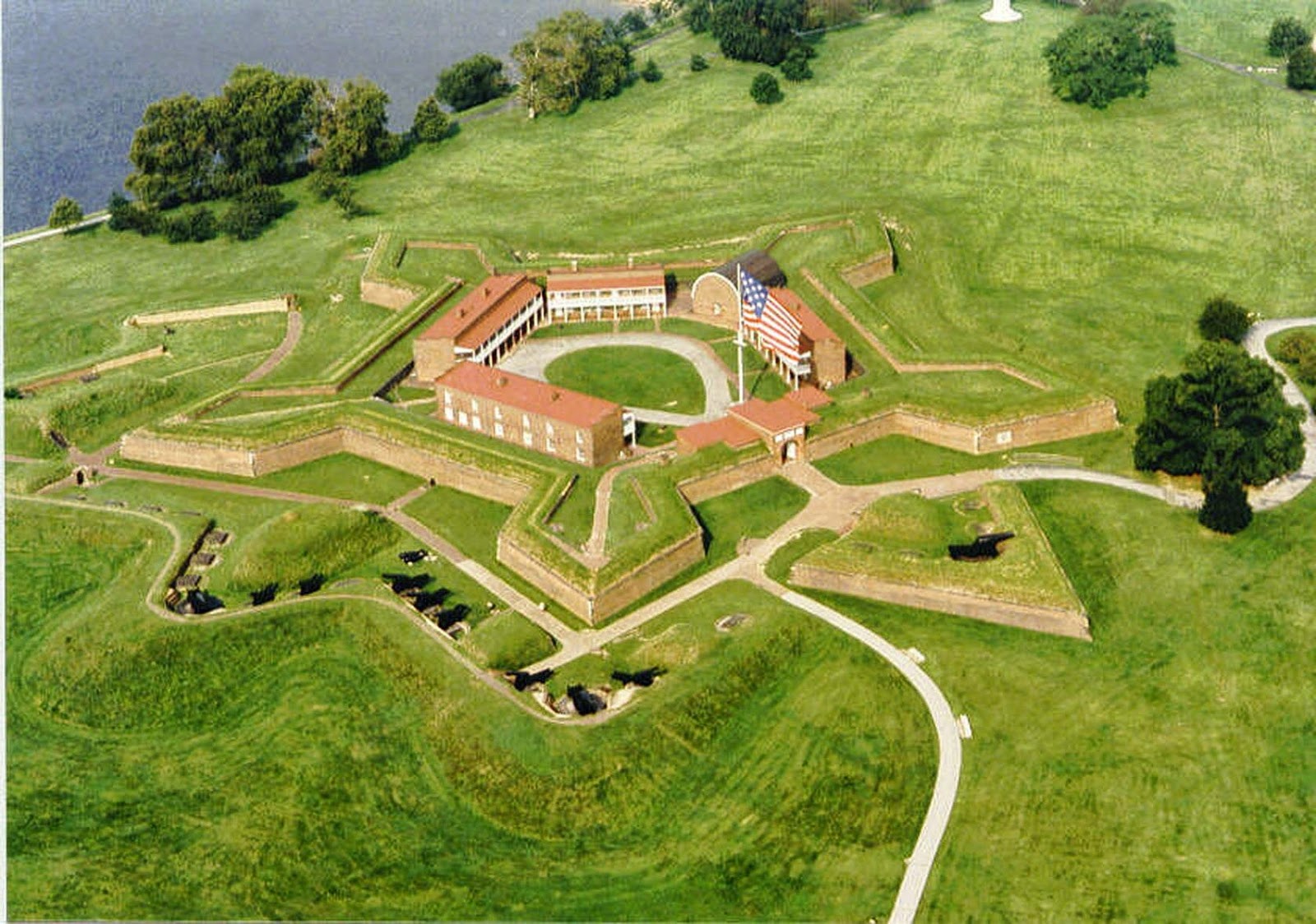Victoria here. Our last post on the War of 1812 had the British withdrawing from the area after burning Washington City and capturing the town of Alexandria, VA, without firing a shot. Under the leadership of Naval Vice Admiral Alexander Cochrane and Army General Robert Ross, the British forces prepared to take the city of Baltimore, Maryland, a more formidable prize than the half-built capital had been.
In the ultimate settlement of the War of 1812, neither side achieved its aims. However, the independence of Canada from the U.S. was assured. The War of 1812 was almost forgotten (except by Canadians) until this bicentennial, with one important exception. The words to the United States National Anthem, The Star-Spangled Banner, were written as the battle raged. I wonder how many U.S. citizens know it was NOT written about the Revolutionary War.
On September 13, 1814, British warships began the bombardment of Fort McHenry at 6 a.m. The British could not pass Fort McHenry because many had been sunk in the channel to prevent the enemy passage, as well as the attackers needing to sail close to the American cannons at the Fort. Eventually, after 25 hours of rather inaccurate shooting from both sides, the British ran low on ammunition and withdrew. The British ships received mostly minor damages, one person injured; the fort had four killed, 24 wounded, and damage to several of the buildings.
onal
The day before the naval bombardment, General Robert Ross, who had led the attacks on and burning of Washington, led a group of British soldiers to what became the Battle of North Point. He was severely wounded by American sharpshooters and died as he was being returned to the fleet. After his body was placed in a barrel of Jamaican rum, it was taken to Halifax, Nova Scotia, where he is buried.
Buildings within the fort have been restored and are well maintained; displays in many of them tell the story of Fort McHenry during the War of 1812 and the Civil War.
Oh say, can you see by the dawn’s early light,
What so proudly we hailed at the twilight’s last gleaming,
Whose broad stripes and bright stars through the perilous fight,
O’er the ramparts we watched, were so gallantly streaming?
And the rockets’ red glare, the bombs bursting in air,
Gave proof through the night that our flag was still there;
Oh say does that star-spangled banner yet wave,
O’er the land of the free and the home of the brave?
There are several additional verses, not often sung.
.





good picture